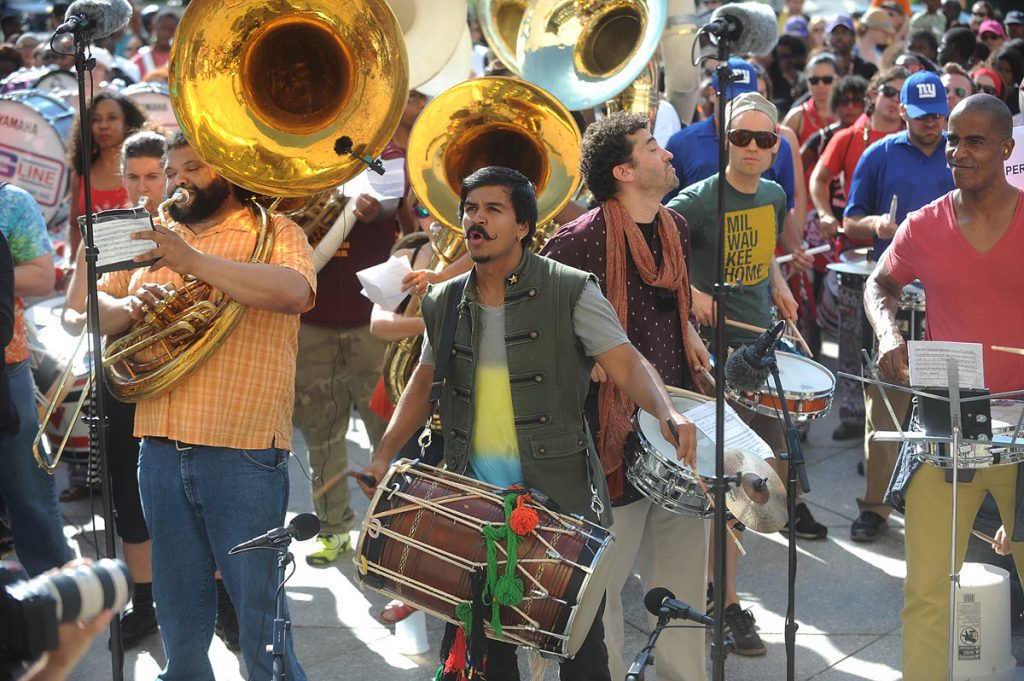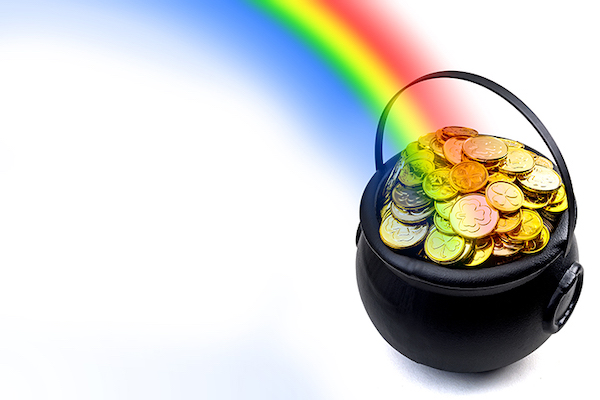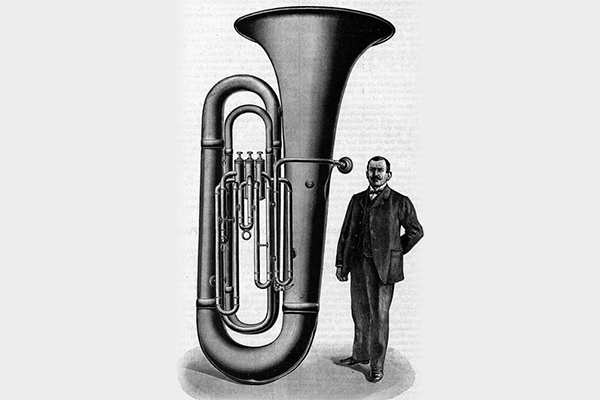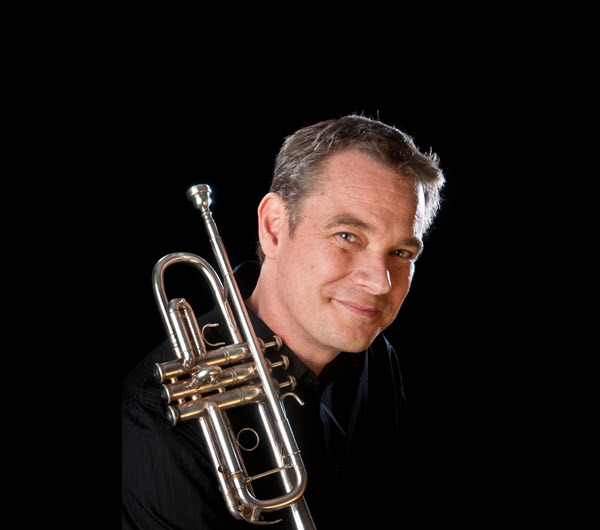Giving Is Receiving
Get that warm glow by gifting a musical instrument this holiday season.
When the holiday season nears, it’s a good time to reflect upon the spirit of giving. I’ve come to the conclusion that it can definitely be more rewarding than receiving, and I’ve found that the act of putting musical instruments in particular in the hands of kids (and adults too) has especially profound and lasting effects on their lives.
For several years now, I have been asking friends and family (I even ask myself!) if they have any spare instruments that are being unused. More people than you might think have unplayed guitars or basses sitting sadly in a dark closet, gathering dust. When I get these instruments, I seek out an individual or group who needs them so I can donate to what I call “the cause.” Whenever possible, I show the recipients how to play a few notes or chords to give them a nudge to create in their own way. I derive immense satisfaction from knowing that these instruments now have a new life and can potentially bring a world of positive experiences to their new owners.
Since I started playing at a young age, the guitar has always been something I could turn to, both in the good times and the bad. I still turn to my it when I want a moment of peace or need to clear my head. Creating music has been a lifelong blessing and that’s exactly why I want to share that feeling by giving instruments to others.
Besides just feeling good in the soul, giving offers both mental and physical rewards. “The simple act of giving can feel quite satisfying,” notes doctoral student Jo Cutler in her online Impakter article entitled The Neuroscience of Philanthropy. “This feeling is known as ‘warm glow,’” she continues, “and it activates the striatum and other reward-related areas of the brain.” Cutler goes on to explain that the brain scans that served as the basis for her study were divided into two types. The first were from participants that gave strategically — in other words, to get a defined benefit in return for the gift. The others were collected when people gave altruistically — such as anonymous donations or charity. The conclusion? Both strategic and altruistic generosity activated reward regions in the brain.
This is something I know to be true from personal experience. Several years ago, I was traveling abroad for the holidays with a friend whose mother was suffering from early stages of Alzheimer’s. Her daughter had brought with her a small travel guitar, and when I played it during our visit, I noticed how the mother, who was already starting to lose the ability to communicate, had a certain look of wonderment on her face — a look I will never forget.
I decided to try an experiment. I tuned the guitar to an open D (DADGAD) so that no fretting was required to make a chord, and then I gently placed the guitar in the mother’s lap. Standing behind her, I took her arm and hand and began to show her how to strum. She immediately caught on and lit up brighter than a thousand Christmas trees. For the remainder of our visit, she continued to strum that guitar and make joyous noise with it just about every day. It was an easy decision for her daughter to leave the guitar with her as a gift.
My friend’s sister later told me what a difference that guitar made to her mother’s well-being long after we left. In fact, when the mother made a visit to her native country some time later, she requested that the instrument accompany her. The simple act of putting an instrument in someone’s hands brought so much happiness to a person in need — and it made no difference whatsoever that she didn’t know how to play it.
That said, knowing how to play even a few notes on an instrument can have lasting effects. An online Guardian Students article points out that “playing a musical instrument is a rich and complex experience that involves integrating information from the senses of vision, hearing, and touch, as well as fine movements, and learning to do so can induce long-lasting changes in the brain.” The author also notes that “musicians provide a natural laboratory in which neuroscientists can study how such changes — referred to as experience-dependent plasticity [or neuroplasticity] — occur across their lifespan.”
The gift of an instrument can open up a lifetime of music making, so if you have any old guitars, basses, keyboards, drums, saxophones, clarinets, flutes, violins, violas or other unused musical gear lying around, consider finding someone who might benefit from it. Or you could just visit your music store and surprise someone with a new instrument. Either way, they win and you win. Giving truly is receiving!















